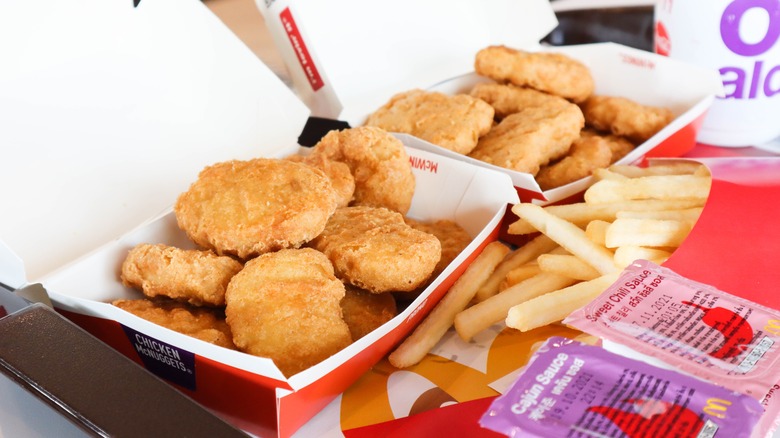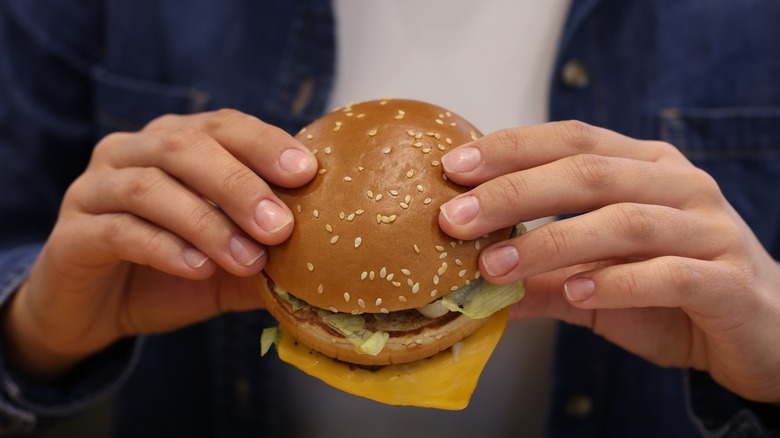The McDonald's Location Fact You Totally Didn't Realize
We know McDonald's is seemingly everywhere; it's the largest restaurant chain in the world by total stores. Even if only four African countries have a McDonald's, they're pretty much ubiquitous everywhere else. But the total numbers might amaze you, especially compared to other facilities typically considered more important for a functioning society than a fast food chain.
Take McDonald's and hospitals, for example. The United States has 6,120 hospitals. That's not an insignificant number of healthcare facilities, but it's less than half the number of McDonald's in America, which rises to 13,529. So, isn't this a huge problem we should be concerned about?
Well, not really, no. While it may seem odd that there are so many locations of one specific restaurant chain compared to an essential service like a hospital, it makes a lot of sense. After all, how often do you need to eat compared to how often you need medical attention?
It makes perfect sense there would be more McDonald's than hospitals
McDonald's reached its lofty success by being cheap, accessible, and consistent — the company's focus on an invariant experience in particular is why McDonald's dislikes regional menu items, for instance (and why some locations selling random, unofficial food items tends to make corporate unhappy). A quick, affordable dinner option where you always know what you're getting will always be in high demand, so it's not surprising the chain has thousands of locations. After all, you need to eat every day, and each location can only handle so many customers.
What most people don't need every day is medical attention. Hospitals are critical, and it's true that healthcare suffers from issues like accessibility in rural areas and staffing shortages across the board in America; GoodRx's research indicates that 80% of the country can't easily access healthcare. But even if there were enough hospitals and medical professionals to comfortably serve every American, the number of McDonald's locations would vastly outnumber them — and that's not some crisis we need to worry about.
Other essential services vastly outnumber McDonald's
It also makes sense because a hospital is a centralized location where people go in an emergency. A single hospital is much larger and can serve many more people than a single McDonald's restaurant at one time, while a company like McDonald's will want to ensure as much geographic coverage as possible over a broader area in order to maximize profit. Hospitals, meanwhile, aren't generally concerned with luring in as many customers as possible — especially not the 1,551 public hospitals in the United States.
The proof is in the pudding here, as other essential services — which typically require smaller locations spread over a larger geographic area than hospitals — vastly outnumber McDonald's. There are 18,000 local police departments in the U.S. (meaning an even higher number of precincts), for example, and 27,129 registered fire departments. The disparity is even more severe with schools: America has 130,930 elementary, middle and high schools, reflecting the nature of an essential service millions of people rely on consistently from day to day, similar to how they always need to eat.
So, while it may seem strange that there are double the number of McDonald's locations in America as there are hospitals, it's pretty standard. There's no reason to treat it like a crisis that needs solving.


